Driving Dystopia: Connected Vehicle Data Now Up For Grabs By Intelligence Agencies
Connected vehicles now appear to be on the table as a new vector for government surveillance. On Saturday, President Joe Biden signed a bill that reauthorizes Section 702 of the Foreign Intelligence Surveillance Act after the Senate passed it late on Friday (60-34).
Driving Dystopia: Automakers Are Selling Your Driving Data to Insurance Companies
A recent report from The New York Times has accused automakers of selling customer driving data to insurance firms. While this is something many drivers had already been made aware of since the implementation of connected vehicles, the outlet claims that the amount of data has ramped up to a staggering degree. Not only is the amount of data being shared staggering, so is the specificity and degree to which it’s impacting people’s insurance rates.
The report focuses on LexisNexis’ “Risk Solutions” program formerly dedicated to keeping track of accident reports and moving violations. However, the division has expanded dramatically over the years and now oversees just about every scrap of relevant data modern vehicles can accumulate about you.
Driving Dystopia: Europe’s Low Emission Zones Aren't Going Over Well
With New York City having decided to embrace European-style congestion charging as local residents express their displeasure, it might be wise to take time to look at other roadway initiatives that might soon migrate across the Atlantic to see how they’re fairing. Ultra Low Emission Zones (ULEZ) seem to be the next step, as they’re reliant on the same camera systems and vehicle tracking used for congestion taxes. However, they’re also following a similar trajectory as Britain's speed cameras in Europe. Disgruntled citizens have not only continued destroying the devices, they’re reportedly picking up the pace.
Driving Dystopia: Judge Dismisses Automotive Privacy Lawsuit
Last week, a federal judge refused to have the courts reexamine a gaggle of class action lawsuits claiming automotive manufacturers had violated Washington State's privacy laws after allegations that on-board infotainment systems were recording customers’ private text messages and mobile phone call logs. Despite substantial evidence that the above claims are not only true but also just the tip of the iceberg as manufacturers have normalized some of the most egregious data harvesting we’ve seen, the Seattle-based judge said the allegations were not severe enough to be considered a violation of the Washington Privacy Act (WPA).
Maine Approves Right-to-Repair Rules, Auto Lobby Annoyed
The State of Maine has voted "yes" to Question 4, which mimics the right-to-repair legislation that passed in Massachusetts three years earlier. This makes Maine the sixth state in the U.S. to approve such a measure and requires automakers to standardize modern vehicle onboard diagnostic systems and make them available to both customers and any independent repair shops they’d like to use.
While the decision represents another important victory for the right-to-repair movement, the world’s largest automotive lobby predictably bemoaned the situation.
Editorial: Why Are People Worried About Automotive 'Kill Switch' Mandates?
This year has seen a surge of panicked reports discussing how the U.S. government has mandated vehicle hardware that would allow authorities to wrestle control away from the driver. Usually referenced as a “kill switch,” the device is supposed to be required on every new automobile manufactured after 2025.
The claim hangs responsibility on the extremely broad Infrastructure Investment and Jobs Act that was passed in November of 2021. But the pertinent legislation actually focuses on combating impaired motorists by mandating “advanced drunk and impaired driving prevention technology” as standard equipment. Though it doesn’t get all that specific in terms of what that entails and gives an incredible amount of leeway to federal regulators.
How Much Privacy Do You Really Have In Modern Vehicles?
Whenever the issue of vehicular privacy comes up, the discussion almost immediately pivots to individuals either defending or condemning the status quo. But this often happens without either side of the argument having a firm understanding of how much information is actually being obtained inside today’s automobiles.
While we’ve covered the topic frequently, articles have typically focused on specific issues rather than overall scope. But things are different this time, with the Mozilla Foundation recently issuing a study trying to assess just how far-reaching the automotive industry’s quest for data has become.
Renault Launches Built-In Waze App for France, Interested?
Waze has become an incredibly popular navigation tool for drivers, growing from just a few thousand users in 2008 – back when it was still called FreeMap Israel and Linqmap – to a whopping 140 million monthly active users spread across 185 countries by 2022. This surging popularity has been attributed primarily to Waze offering features that allowed drivers to share travel details that would be of use to other drivers, pinning things like the location of speed traps, wrecks, and construction, or simply helping the application estimate route times. But it’s only ever been a mobile app that can be mirrored to your dashboard – until now.
Noting that Waze is the most commonly used driving application in France, Renault has partnered with the company to deliver a dedicated version of the app for its vehicles.
Automakers Claim They Can’t Comply With Right-to-Repair Laws
The State of Massachusetts' Right-to-Repair law was passed in 2012, laying the foundation for the rest of the United States to begin securing consumer protections that would allow them to work on the products they own. General Motors and Stellantis are now claiming they cannot possibly adhere to the rules and have done nothing to prepare for complying with the law.
QOTD: How Much Privacy Will You Trade?
We've been on the privacy kick lately, reporting a bit this week on automaker plans to use technology to provide over-the-air updates and feature upgrades, at the possible expense of your privacy.
Report: Connected Cars Already Know Everything About You
Vehicular privacy is one of those things we never thought we’d have to gripe about but, as automotive connectivity becomes the norm, it’s become one of the most nagging issues in the industry.
Taking a cue from tech giants like Google, Facebook, and pretty much every other website you’ve ever connected to, automakers have begun leveraging customer data on a massive scale. Always-on internet connections exacerbated this problem (feature?), but it’s extremely difficult to tell exactly what kind of information is being shot up into the cloud before ending up at a manufacturer’s data center.
While we’ve seen cars hacked for the purpose of assessing how they’d stand up to malicious entities bent on wreaking havoc, few have attempted to decode the surplus of information emitted by your vehicle. We know this because people would probably be pretty upset to learn of the pathetic level of anonymity currently afforded to them. Despite spending tens of thousands of dollars on a new vehicle, privacy is rarely considered standard equipment.
Australia Introduces Phone Detection Cameras for Roads
Australia put up the first phone-detecting cameras in New South Wales over the weekend. The move is part of a broader plan to reduce roadway fatalities by 30 percent by 2021 — especially as new technologies continue to exacerbate the issue of distracted driving. “It’s a system to change the culture,” NSW Police Assistant Commissioner Michael Corboy told Australian media las week.
There’s nothing incredibly new about the cameras themselves. But they’re networked to an artificial intelligence that determines whether or not someone behind the wheel is using their phone. Suspect images are then forwarded to authorized personnel to be verified as truly criminal.
Guilt-tripping Radar Speed Signs Could Soon Read Your Plate
Modern society seems to be divided into two camps — those who say, “If you aren’t doing anything wrong, why would you have a problem with [expanded government power A]?” and those who drop their copy of Reason in horror as each new measure designed to make society “safer” erodes their perceived freedom just a little bit more.
The former group will cheer this news, though the latter camp will surely decry our steeper descent into a Surveillance State. Those annoying roadside signs that flash your current speed might soon record your plate number.
QOTD: The State of a Scarlet Letter?
Last week’s QOTD post about states and their respective license plates generated a few comments about a particular plate issued by the state of Ohio. In today’s question, we dive a little deeper and focus solely on this Ohio plate, which just happens to be more unique than every other license plate in use today.
That Sucks: Tesla Was Hip to Dyson's Secret Car Plans Before Any of Us
As you know, Dyson, the vacuum/hairdryer manufacturer, is moving into electric vehicles. The company has made plans to introduce a radical example (with new solid-state batteries) to market by 2020 that will suck and blow you away. But you only found out last year, which was long after Tesla Motors caught wind of a fresh competitor on the horizon.
Apparently, an engineer spilled the beans to Tesla’s legal representation around the same time he was being interviewed for a position at the automaker. If you’re wondering if he got the job, he did.
This is the second time Dyson’s plans for EV secrecy went haywire. Its public announcement wasn’t supposed to be until September of this year. However, a slip-up by the British government saw its National Infrastructure Delivery Plan mention that the public would help fund the company in “developing a new battery electric vehicle” — giving away the secret in 2016.
Hyundai Rolls Out Pricing for Crossover-fighting 2018 Elantra GT; Entry Starts Just Above $20K
Hyundai, as we told you last month, has a pretty competent little hatchback on offer for 2018: the newly restyled, revamped, and (Hyundai hopes) reinvigorated Elantra GT. Sporting a mature European-designed body made possible by the overseas i30, the 2018 Elantra GT spices up its roomy hatch bonafides with available power — you’ll find 201 horsepower and 195 lb-ft of torque from the Elantra Sport-sourced 1.6-liter turbo four-cylinder in the GT Sport.
Its base powerplant isn’t necessarily a slouch, either. (You’ll be able to read a TTAC review of the GT next week.) A direct-injection 2.0-liter generating 162 hp and 150 lb-ft puts the entry-level Elantra sedan’s powerplant to shame, and the cargo room — well, Hyundai’s all about that GT cargo volume. Why else would it call the model “a viable alternative to small CUVs for buyers desiring more fun-to-drive characteristics and greater utility” in the preamble to its price list?
The 2018 price floor for Hyundai’s front-wheel-drive CUV fighter isn’t much higher than last year’s, and those optional ponies won’t exactly break the bank. You can improve a Korean car 12 ways to Sunday, but you still can’t charge more than the Japanese or Germans.
Elderly Man Wins Court Case After Receiving Three Tickets for Smoking in His Porsche
While places like New York and California might come to mind first, no one bans things quite like the jurisdictions north of the border. Banning, a popular pastime given the cold outside temperatures, are always done in the hazy pursuit of public safety. Something bad could happen? Ban it.
When it comes to smoking, few will disagree that smoking in the workplace can have a negative impact on employees. The same goes for restaurant and bar patrons. As non-smoking areas (both indoors and outdoors) expand across the U.S., here’s a cautionary tale of how vindictive and overzealous an enforcer of these law can be.
They’ll nab you in your car.
Yes, Your Autopilot-Equipped Tesla Will Film a Crash
It’s common knowledge that Tesla vehicles store and transmit data back to the company’s Fremont, California home base, but a hacker working on a wrecked Model S just discovered something startling.
In an interview published by Inverse (h/t to Hybrid Cars), North Carolina computer programmer Jason Hughes claims that Tesla’s Autopilot system actually records video. While working on a center display unit from a wrecked Model S, Hughes found footage of the vehicle’s crash.
Fiat Chrysler Cracks Down on Data Violators After Ram/Jeep Theft Ring Bust
A Houston-area vehicle-theft ring that used laptops to enter, then steal, over 100 Jeep and Ram vehicles exposed a serious internal security breach at Fiat Chrysler Automobiles.
Now that two arrests have been made in the case, FCA is talking tough and threatening criminal proceedings against anyone who provides outsiders with key vehicle data, Automotive News reports.
Michigan's Roadside Drug-Testing Program Violates Constitutional Rights, Say Advocates
A roadside drug-testing pilot program signed into law at the end of June is unconstitutional and runs the risk of destroying lives, a motorist’s advocacy group says.
Michigan’s “Barbara J. and Thomas J. Swift Law” will see five counties selected for roadside saliva swab tests designed to identify drivers impaired by drugs. The one-year pilot, which became law on June 24, raised the ire of the National Motorists Association, which claims the law oversteps boundaries and could prove inaccurate.
'License, Registration, and Assets, Please': How Oklahoma Cops Swipe Away Your Money During a Traffic Stop
When a police cruiser lights up behind you, a driver usually fears two things: a costly speeding ticket, or a roadside breathalyzer test.
The driver probably isn’t worrying about having the contents of his or her bank account seized, followed by a long and possibly fruitless journey to recoup their lost cash, but that’s the power local law enforcement has over its citizens.
And technology is now making it easier to use that power more and more often.
NSA in Your NSX: Your Car is a Data Breach Waiting to Happen
Your faithful four-wheeled companion — the one that costs you an arm and a leg but you still love it — has the data-gathering potential to make your life a Kafkaesque nightmare.
Researchers have found that a car’s computer network can identify a driver just by the way they operate the vehicle. Even something as simple as the brake pedal can pinpoint who’s behind the wheel, according to a report published in Wired.
Let Your Fingers Do the Blocking: Craigslist's Paranoid Plate Appendages
TTAC commenter Piston Slap Yo Mamma has given us a great gift.
While perusing used cars on his local Craigslist site, he noticed a trend occurring in the vehicle images. Fingers. Lots of them. Obscuring license plates. Possibly, revealing more about the driver than the plate itself.
So numerous were these crooked appendages, often topped with purple or naturally yellow nails, that he felt the need to share them. So, this Tumblr page was born.
Transunion Deploys Great New Tool for Stalking and Killing Ex-Wives
The phrase “disruptive technology” has long since been co-opted to mean “a new iPhone app for people to share photos of their meals” but it has an original and genuine meaning as well: any technology that matures faster than society’s ability to use it constructively. The list of disruptive technologies includes entries as diverse as mustard gas and the automobile itself, but the advent of the connected world has unleashed a diverse cornucopia of unintended consequences ranging from Amazon’s destruction of brick-and-mortar retailers to the corrosive effect that the various “reunion” and “classmates” websites have on American marriages.
TTAC has covered the world of automated license plate readers (ALPRs) several times, most recently discussing a company that assists police with collecting outstanding court costs and fines against motorists in traffic. We’ve also discussed the fact that governmental use of ALPRs amounts to a sort of camel’s nose under the tent.
Here’s the rest of the camel.
'Can I Have Your License, Registration and Phone, Please'
As the state of New York debates new distracted driving legislation, an Israeli firm is putting the finishing touches on a “textalyzer” device that could rat out drivers for using their phone before a crash.
Israeli mobile forensics firm Cellebrite developed the data-scanning device, according to Ars Technica, which could become the newest — and most controversial — law enforcement tool since the Taser.
Cellebrite, which sounds like a medication for over-sexed honors students, specializes in data extraction and decoding, and boasts of its 15,000-plus military and law enforcement customers on its website. The firm really knows its stuff — it’s generally believed that they helped the FBI hack into the iPhone at the heart of the San Bernardino/Apple controversy.
Toyota Embraces Big Data (Science), Spins Off a Company
Your vehicle’s technology is enslaving you, and Toyota wants to help you break free.
Today, Toyota has become the latest automaker to create a subsidiary tasked with generating new technology and innovation for its parent company.
Called Toyota Connected Inc., the venture is a collaboration with Microsoft that will serve as a data science and mobile technology hob for the world’s largest automaker. The plan is to use Microsoft’s Azure cloud technology to “humanize” the driving experience and make vehicles’ high-tech abilities less intrusive and more useful.
DOT Goes Wikileaks on Dealers, Puts Your Car's Secrets Online
Your vehicle’s hidden flaws and most shocking (mechanical) secrets will soon be just a click away.
The Department of Transportation is ending the clandestine relationship between your car’s dealer and the manufacturer by posting all Technical Service Bulletins (TSB) online, according to Consumer Reports.
TSBs, which outline the recommended procedure for repairing vehicles, will be posted in PDF form on the safercar.gov website.
True to His Word, Chip Perry is Revamping TrueCar
TrueCar, the prolific third-party car shopping site, is changing the way it does business in the hopes of mending dealer relations and reversing the company’s flagging fortunes.
When TrueCar president and CEO Chip Perry took the helm of the site last December, his stated goal was to make amends with ornery partners and bring the company out of a period of turmoil.
Time To Be Vigilant About Vigilant Solutions' Spying On Motorists?
You probably don’t know much about Vigilant Systems, but the company likely knows more about you than you know about them. That because Vigilant Systems is in the business of knowing. The company has so far collected about 2.8 billion license plate photos with its network of cameras, and every month it adds another 70-80 million photos, including a timestamp of the photo and geographic location of the plate, to Vigilant Solutions’ permanent storage. They sell that data to police departments and, depending on the jurisdiction, even some private sector institutions, such as insurance companies investigating fraud.
Vigilant Solutions’ deals with government agencies have raised concerns about civil liberties, freedom of movement, privacy and mass surveillance. As Conor Friedersdorf at The Atlantic describes Vigilant Solutions, “your diminished privacy is their product.”
SURPRISE: Some Bus Drivers, Police in Chicago Not Required to Pay Speed Camera Fines
A Chicago Tribune investigation has uncovered that the city’s speed cameras have nabbed school bus drivers, police, public employees and city bus drivers more than 8,000 times over the past two years.
In most cases the tickets were passed on to the drivers, but in some cases — bus drivers and police driving unmarked cars who could justify speeding — those fines were either paid by the Chicago Transit Authority or waived altogether.
The Chicago Tribune’s fine, fine, fine reporting work uncovered 714 bus violations and more than 2,000 police tickets in two years.
Photographer Charged With Trespassing, Battery Near Tesla 'Gigafactory'
Police say a photographer with the Reno Gazette-Journal on Oct. 9 trespassed at Tesla’s battery factory in Nevada and struck security guards there with a car.
According to Storey County Chief Deputy Melanie Keener, the photographer, Jose Andrews Barron, was charged with misdemeanor trespassing and two counts of felony battery. He was taken to Storey County Jail and held in lieu of $30,000 bail. It’s unclear if Barron is still at the jail.
In a post on its corporate blog, Tesla said Barron and another newspaper employee climbed over a fence and took pictures of the battery factory. When approached, Barron and the other employee jumped into a car with Reno Gazette-Journal stickers. Barron struck a security guard on his way out and hit another security manager on an ATV. According to the newspaper, the driver’s side window was smashed and a seatbelt was cut in half.
Apparently All Cars Can Be Hacked Now: Insurance Dongle Edition
Hackers say they may be able to control any vehicle with a telematics-enabled sensor — including a popular sensor that insurance companies use for consumers — plugged into the car’s diagnostic port, according to Wired report (via The Verge).
In recent weeks, several hacks have surfaced — Chrysler, General Motors and Telsa — related to specific automakers. According to the report, the On-Board Diagnostic system hack could apply to any make or model fitted with an insurance or tracking dongle. The University of California San Diego researchers say they’ll present their findings at the Usenix conference Tuesday.
And, um, there’s no easy way to put this, but … it doesn’t appear that it would be all that hard to find cars with the dongles at the moment.
OnStar Hack Can Open Doors, Start Car, Track Driver
Not content with scaring the bejesus out of Chrysler owners, Wired has uncovered a hacker who says he can open a GM car with OnStar, start it or track it remotely. The only thing he can’t do is put the car in gear or steer it, which still requires a key.
Hacker Samy Kamkar says his $100 device can seriously annoy — or seriously rob — a GM car owner if he wanted it to. GM promptly responded by saying it fixed the flaw in a way that owners won’t have update their cars.
Kamkar said his exploit wasn’t mean to cause mayhem, but rather to show how modern, technological cars can be vulnerable to hackers.
Phoenix Suburb Installing License Plate Readers To Thwart Rare Burglary Activity
Police in Paradise Valley, Arizona are planning to install 15 license plate readers to aid in thwarting burglaries in the Phoenix suburb.
Virginia Set To Establish Strict Retention Limits On LPR Data
The Commonwealth of Virginia is ready to set strict limits on how long license plate reader data can be retained, said limits being on the order of days.
Homeland Security Re-evaluating License-Plate Reader Database Plan
Over a year after Homeland Security passed on building a national license-plate reader database, the department is once again interested.
Oakland PD Turns Over 4.6M License Plate Dataset Via Public Records Request
Via a public records request, the Oakland Police Department has turned over 4.6 million reads of 1.1 million unique plates recorded between 2010 and 2014.
Zetsche: Google Better Off As Supplier Than As Automaker
Google may have the right stuff to shake up the auto industry, but Dr. Z doesn’t believe the tech giant will ever be an automaker in its own right.
DOD: Connected Technologies Growing More Vulnerable To Sabotage
As connected technologies make inroads into vehicles et al, the growing possibility of sabotage has the Department of Defense and DARPA on notice.
ACLU: Drug Enforcement Administration Tracking Plates Since 2008
It’s not just auto lenders and police who track plates: The Drug Enforcement Administration has collected 343 million records since 2008.
US Data Privacy Guidelines Not Compatible With Euro Privacy Laws
Just as with emissions and headlamps, standards recently adopted in the United States regarding consumer data and privacy won’t be compatible elsewhere, specifically in Europe.
Treasury: GM Bailout Suit Would Hinder Future Actions
Should companies in the future need to be bailed-out by the federal government, they may not be so forthcoming with the necessary information if General Motors’ confidential documents linked to its own bailout see the light of day.
Privacy Advocates Take Law Enforcement To Task Over Handling Of License Plate Data
The panopticon grows taller every day, as motorists who try to learn what information is gathered by the automatic license plate readers face roadblock after roadblock, with three cases set to determine once and for all what can be seen.
Metaxas: License Plate Recognition Can Improve Originations
Aside from GPS-equipped starter interrupt systems, lenders have another tool to repossess a vehicle, with the added benefit of using the data obtained to acquire better contracts: license plate recognition.
Valet Mode Data Recorder In 2015 Corvettes Could Bring Legal Trouble For Some
Not too long ago, General Motors brought comfort to many a new 2015 Corvette Stingray owner with a feature that would do for them what teddy-bear cams did for concerned parents, recording audio, video and vehicle data when the key was given to the valet. Alas, the spyware could land the owner in legal hot water in a dozen states, to say the least.
Lenders Monitor, Control Subprime Nexum Via Connected Vehicle Tech
In a perverse nexus where connected-vehicle technology, privacy and subprime lending intersect, consumers who fall behind on so much as a single payment, or even stray outside a given teritory, may find their vehicles shutdown by their lender from a digital panopticon.
Privacy Concerns By Auto Lenders Shape SEC Asset-Backed Security Rule
It took four years, but the Securities and Exchange Commission has put the final touches on a rule regarding asset-backed securities — including auto loans and leases — and what information is given when a company or investor takes on an ABS.
Real-Time Data May Lead To Greater Automated Law Enforcement
Presently, V2V (vehicle to vehicle) and V2I (vehicle to infrastructure) technologies are meant to allow a vehicle so-equipped to better navigate its surroundings, and to exchange data with other vehicles like it. If law enforcement has its way, however, the red and blue lights in the rearview mirror could soon give way to the electric eye of automated enforcement.
Virginia Company Unveils Text-Detection Device
From the commonwealth where radar detectors are verboten, and speeding has more in common with sex crimes than physical graffiti, a local company has developed a device that can detect the sort of signals a phone might emit when its owner is texting.
Google Wanted Autonomous Vehicle Driver Interventions Kept Quiet
In the entire time Google has been working on delivering an autonomous future upon the driving populace, only one accident was reported, and was caused by human error. That said, the tech giant would prefer you not to know that or of any similar future incidents.
NHTSA 2016 V2V Proposal Open For Public Comment
Android Auto Vs. Apple CarPlay Vs. Your Precious Bodily Fluids
At yesterday’s Google I/O keynote speech, Google laid out its vision for Android Auto (reported here yesterday), which is quite similar to Apple’s CarPlay. I’ve ranted here before about Apple’s CarPlay when it was first announced and after more details came out last March. Both have the idea that your phone can hijack the screen in your car. What’s newsworthy from Google is that we have an enlarged list of vendors who are playing along. ( Wired has the full list. Suffice to say that you’ll have plenty of choices if you want a car that goes both ways, if you know what I mean. Most interesting factoid: Tesla isn’t playing with either Apple or Google. Hear that? It’s the sounds of thousands of alpha-nerd Tesla owners crying out in terror.)
Today, I want to address why you should stop worrying and learn to love having your phone in charge of your car’s telematics display.
GM China Introduces Plate-Scanning App For Driver-To-Driver Texting
Ever been cut-off by a driver and wanted to let them know exactly how you feel without the need for a PIT bumper? Did you happen to see someone attractive pass you by, but didn’t want to be as obvious as Clark Griswold about it? If you’re in China, General Motors is about to make that dream come true in the creepiest way possible.
Data Privacy Concerns Rise Within Connected-Car Industry
As more vehicles come with infotainment systems mounted in the dashboard console, consumers are beginning to face the issue of losing privacy behind the driver’s seat.
Homeland Security License Plate Data Collection Plan Cancelled
A plan to create a database from collected license plate data by the Department of Homeland Security was cancelled after said plans were made known without knowledge from top officials.
Jim Farley Backtracks On FoMoCo Tracking Drivers, GAO: Automakers Retain GPS Data
Ford’s marketing head Jim Farley apologized on Thursday for remarks he made at the Consumer Electronics Show the day before saying that the automaker tracks their customers via their cars’ navigation systems. He said that Ford knows where and when customers drive their vehicles but doesn’t share or sell that data outside the company.
“We know everyone who breaks the law, we know when you’re doing it,” Farley said, according to a report in Business Insider. “We have GPS in your car, so we know what you’re doing. By the way, we don’t supply that data to anyone.”
After Farley’s remarks at the CES propagated, Ford Motor Company spokesman Wes Sherwood denied that the company tracked drivers’ movements. “Ford is absolutely committed to protecting our customers’ privacy. We do not track our customers. No data is transmitted from the vehicle without the customer’s express consent.”
ACLU Says License Plate Scanning Widespread, With Few Controls On Collected Data
TTAC has recently addressed the issue of police using scanning technology to read license plates and then store their street locations. When the story broke, it centered on a few counties in Northern California, but the American Civil Liberties Union has just released documents that show that the practice is widespread across the United States and that few of the police agencies or private companies that are scanning license plates and storing that data, making it possible to retroactively track drivers, have any meaningful rules in place to protect drivers’ privacy. There are few controls on how the collected data is accessed and used. The documents reveal that many police departments keep the information on millions of people’s locations for years, or even indefinitely, whether or not they are suspected of a crime. Data on tens of millions of drivers is being logged and stored.
Tesla Vs. The New York Times: Let's Check The Logs
Pull up a chair, get some popcorn. The fireworks have been flying fast and furious. New York Times reporter John Broder wrote a piece about his press loaner Tesla running out of juice. Tesla, already smarting from the perceived slight given them by BBC’s Top Gear, decided they needed an ace up their sleeve: data logging. Chairman Elon Musk penned a response that included detailed data logs from the press car. Broder responded in general terms and then with a point-by-point response to Musk’s charges. The NYT’s public editor, Margaret Sullivan, has also chimed in with the opening of her own investigation. Notably, Musk hasn’t returned her calls. Her tentative conclusion? “I reject Mr. Musk’s central contention that Mr. Broder’s Sunday piece was faked in order to sabotage the Model S or the electric-car industry.” She also called for Tesla to release all the data they’ve got in proper machine-readable form, not just their pretty annotated graphs with the circles and the arrows and the paragraph on the back of each one.
US Supreme Court Wrestles With GPS Surveillance of Automobiles
The US Supreme Court earlier this month heard oral arguments in a case that will set the legal boundaries for police GPS surveillance of automobiles. Last year, the US Court of Appeals for the DC Circuit ruled that police were wrong to spend a month tracking the every move of Antoine Jones, who was arrested on October 24, 2005 for drug possession ( view opinion). A tracking device had been attached to Jones’s Jeep without judicial approval. The high court judges engaged in heated debate about the rights of motorists in connection with the Fourth Amendment.
Paper Treated Differently Than Smartphones in Automobile Searches
Motorists searched during a traffic stop may find their iPhone data electronically grabbed by police in ways that would not be possible or acceptable with written material. Some police departments, including the Michigan State Police, are equipped with a mobile forensics device able to extract images, videos, text messages and emails from smartphones. In some cases, the device is able to bypass password protection. Several states have been reluctant to curtail law enforcement access to this information.



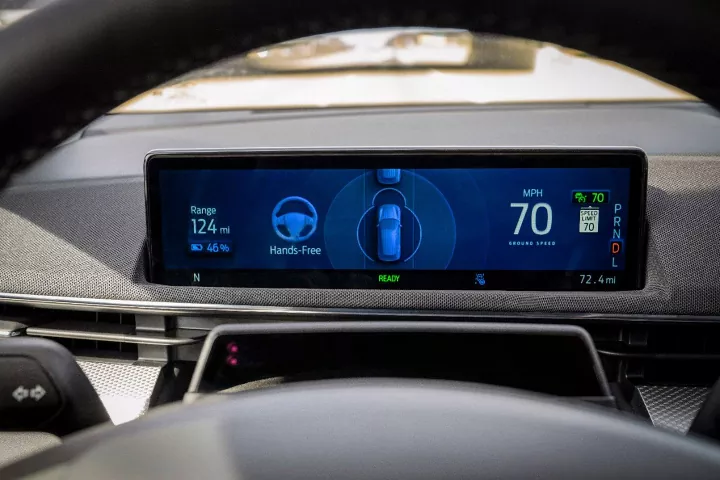
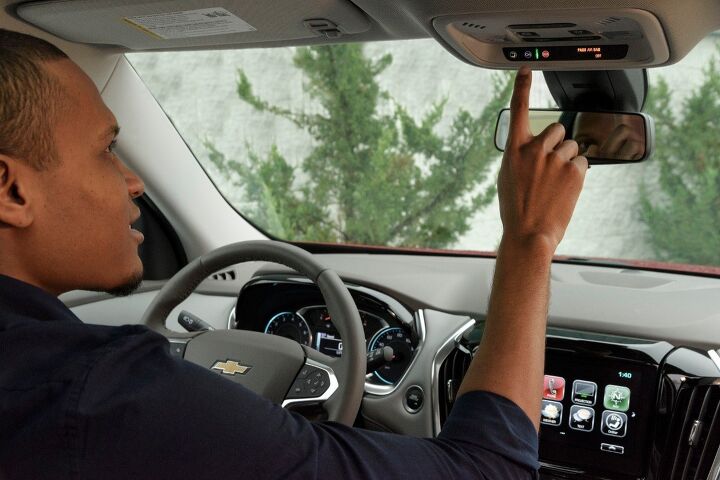
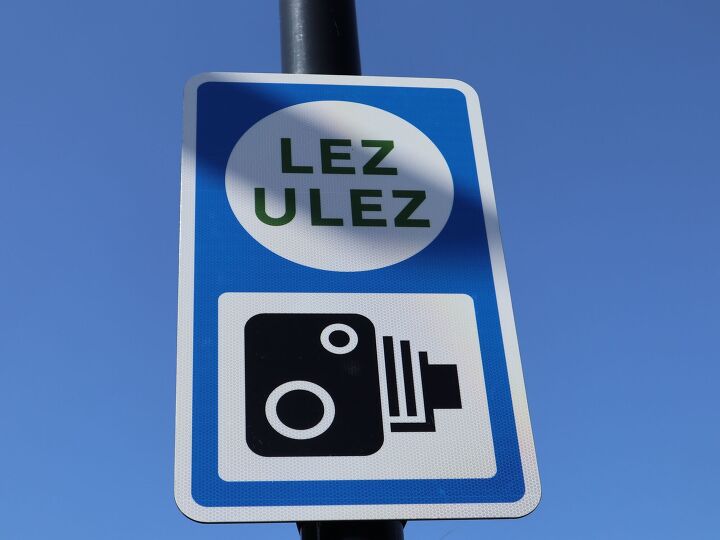






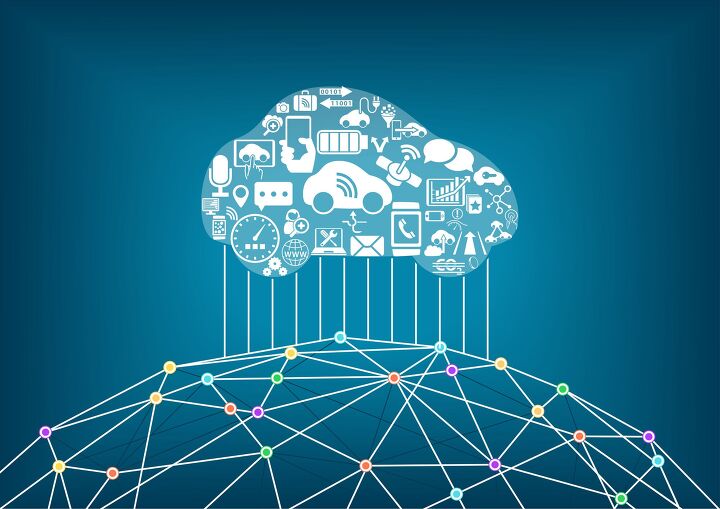
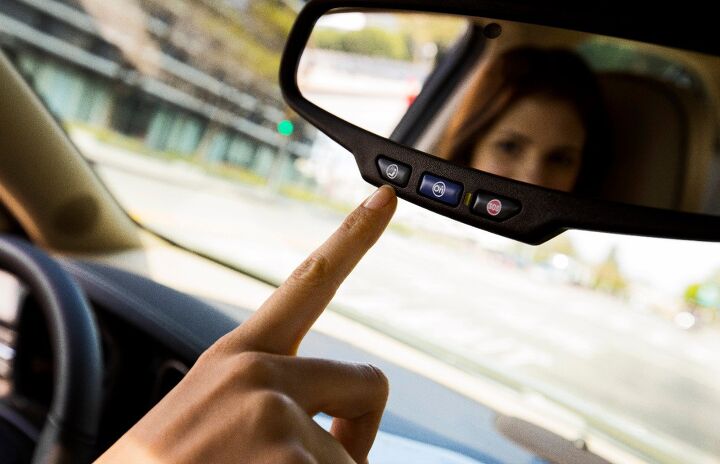
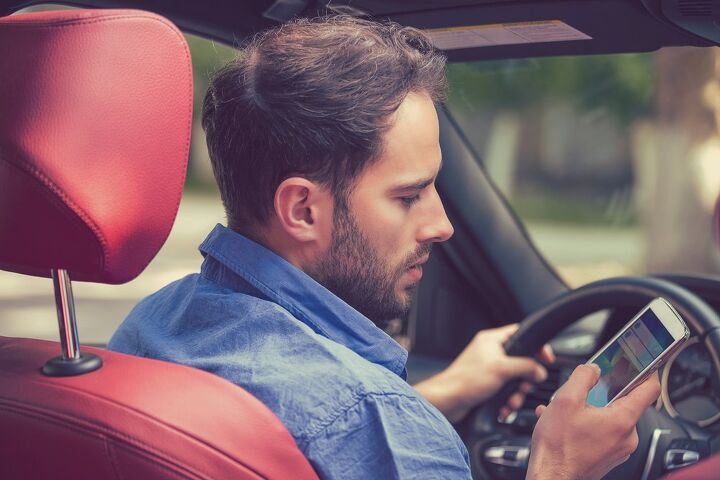







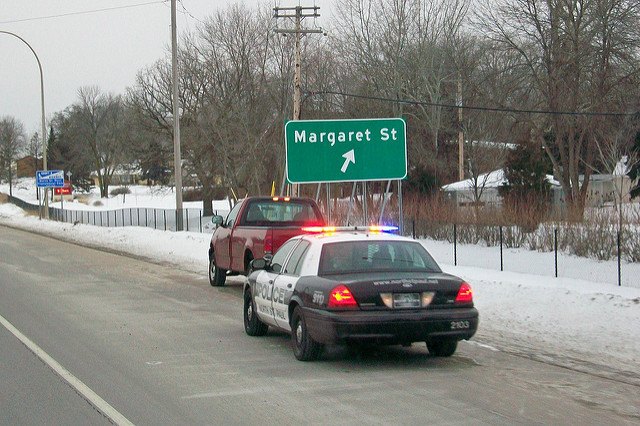



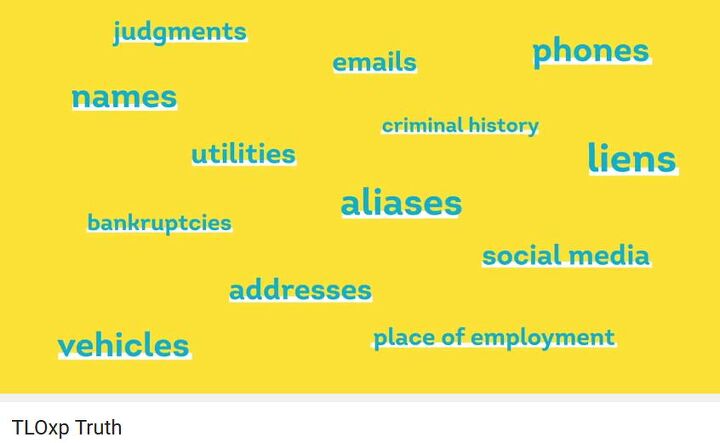







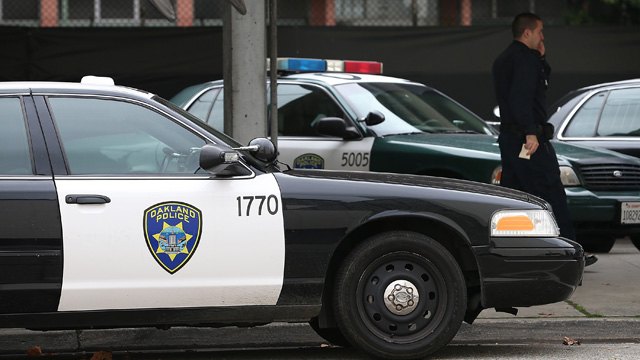

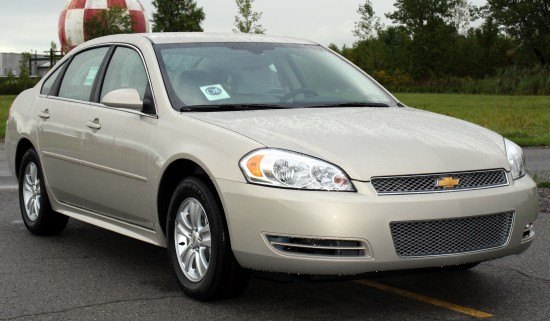





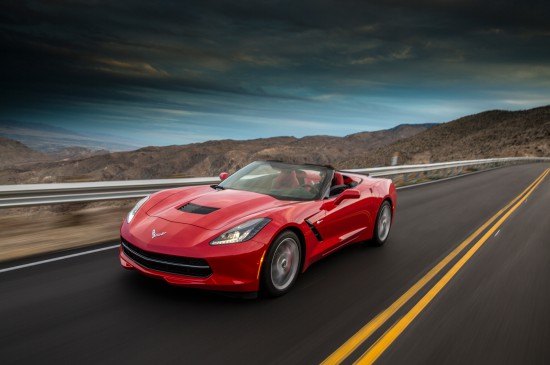

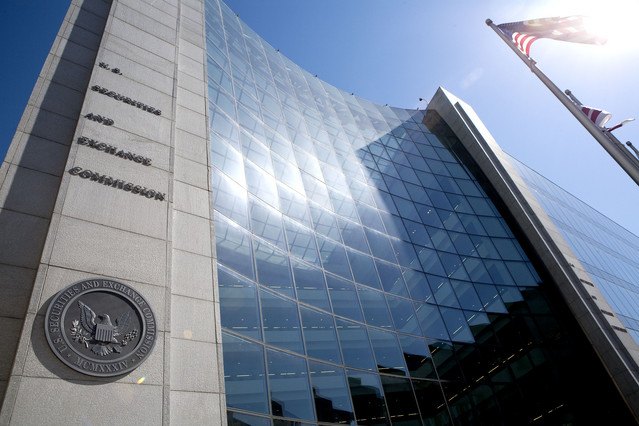
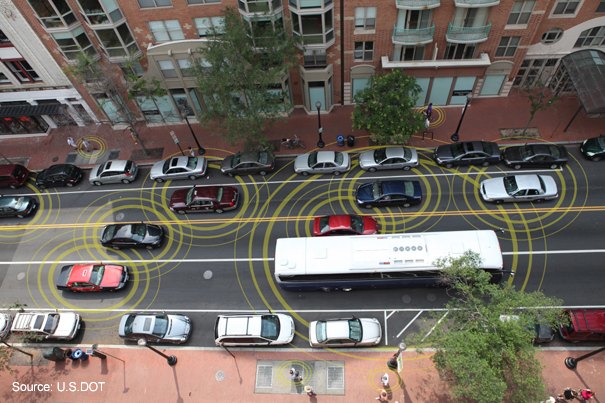






















Recent Comments